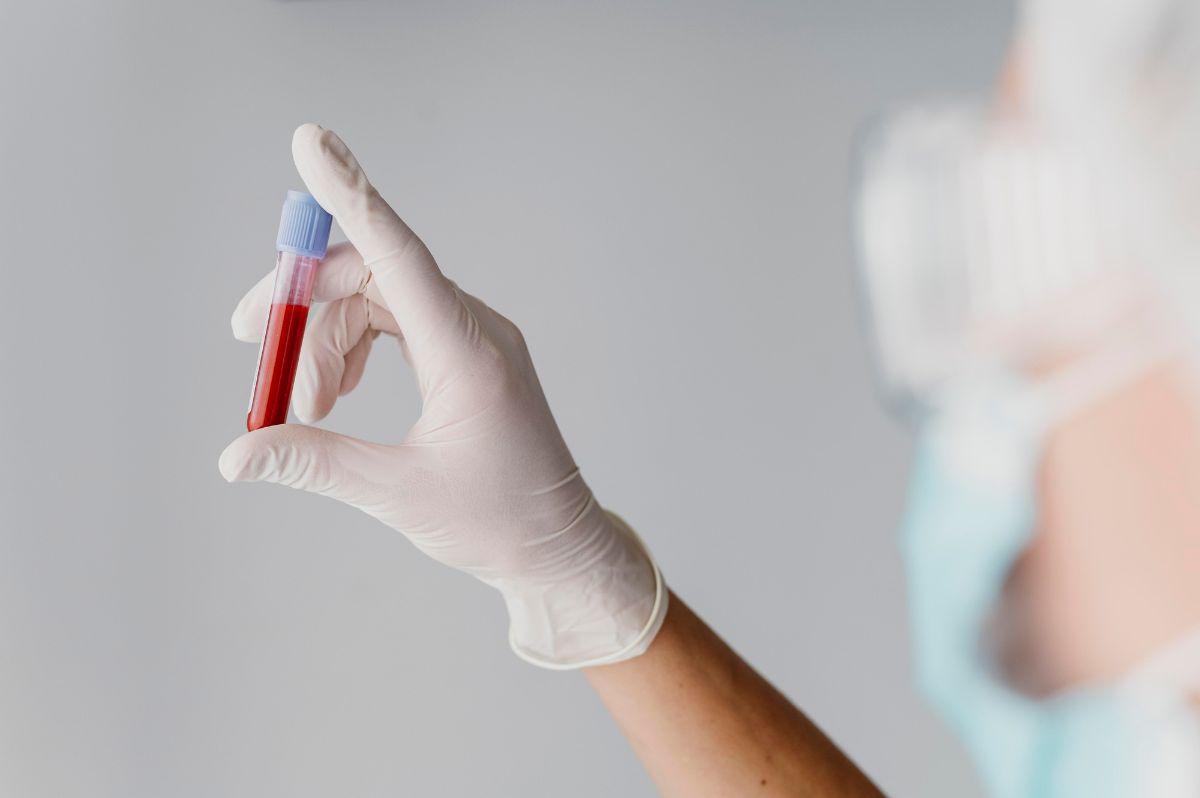If you’re looking for effective blood thinners, you may have encountered Apixaban (Eliquis®) and Warfarin. While Warfarin has been around for quite some time, Apixaban is a newer anticoagulant gaining popularity. It’s part of the novel oral anticoagulant (NOAC) group, including Dabigatran, Edoxaban, and Rivaroxaban.
Compared to Warfarin, Apixaban has a more predictable effect, requires less monitoring, and has fewer drug interactions. This is why it’s becoming a more popular choice among doctors. As of 2019, a generic version of Eliquis® is available in the US, but the branded Eliquis® is still exclusive. Let’s read in more detail about Apixaban vs Warfarin.
In this blog
ToggleWhat is Apixaban?
Apixaban is a medication that prevents and treats blood clots, such as irregular heartbeat, DVT, and PE. It functions by obstructing factor Xa, which prevents the formation of blood clots. Unlike older anticoagulants, it does not require frequent monitoring.
Nevertheless, it may have potential side effects and drug interactions, so taking it under medical supervision is critical. Regulatory agencies such as the FDA have authorized it for urgent medical situations.
What is Warfarin?
Warfarin is a medication that helps prevent the formation of blood clots by interfering with the production of clotting factors through vitamin K. It’s commonly prescribed to reduce the risk of clot-related issues in conditions such as atrial fibrillation, deep vein thrombosis, and heart valve problems. Monitoring the International Normalized Ratio (INR) is essential to maintain safe clotting levels.
Apixaban vs Warfarin: Differences In Licensed Use
Warfarin and Apixaban are two different anticoagulants used in the USA. Warfarin has been around since the 1950s and is a popular choice due to its effectiveness and affordability. On the other hand, Apixaban is a newer type of anticoagulant, belonging to a group called novel oral anticoagulants (NOACs), including Dabigatran, Edoxaban, and Rivaroxaban.
One key difference between the two drugs is that Warfarin requires closer monitoring and frequent dose adjustments to ensure it works properly. It can also interact with certain foods and medications, so patients must be extra careful. In contrast, Apixaban is more predictable and has fewer interactions with other drugs. This has made it increasingly popular, and many people are now switching from Warfarin to NOACs like Apixaban.
It’s worth noting that while a generic version of Eliquis® (the brand name for Apixaban) was approved in 2019, the brand name drug is still protected by a patent, so it’s the only version available. This difference in how the two drugs are used shows how anticoagulant therapy is changing in the USA.
Does Apixaban Have The Same Mechanism Of Action As Warfarin?
Apixaban and Warfarin work differently to prevent blood clots. Apixaban specifically blocks Factor Xa, which stops thrombin formation and reduces clotting.
Warfarin interferes with the production of clotting factors by inhibiting vitamin K epoxide reductase. Warfarin reduces the blood’s ability to clot by disrupting the production of functional coagulation proteins, lowering the risk of clot formation. However, its effectiveness is influenced by vitamin K intake and medication interactions, requiring careful monitoring and dose adjustments.
Apixaban and Warfarin are both anticoagulants, but their mechanisms of action differ in how they achieve their effects.
How Does Apixaban Work?
Apixaban is a medication explicitly targeting and blocking Factor Xa, a critical substance that causes blood clots. Stopping thrombin formation helps lower the chances of harmful blood clots like strokes and deep vein thrombosis. Unlike older anticoagulants such as Warfarin, Apixaban targets Factor Xa directly and doesn’t require as much regular monitoring to be effective.
How Does Warfarin Work?
Warfarin slows down the blood’s clotting ability by affecting a vitamin called K. This helps prevent dangerous clots in some situations. When you have a cut, your body needs certain things to come together to stop the bleeding. Warfarin makes it harder for these things to work together. However, because Warfarin’s effect can change, doctors must check your blood often to ensure it works correctly.
Apixaban Vs Warfarin: Which Is More Effective?
Extensive research and clinical studies have looked into the effectiveness of Apixaban and Warfarin. They found that Apixaban has shown to be just as good, if not better, than Warfarin in various situations.
Clinical Trials and Studies:
Patients with atrial fibrillation are at risk of stroke or systemic embolism. A clinical trial called the “ARISTOTLE” trial compared two medications, Apixaban and Warfarin, and found that Apixaban was more effective in reducing the risk of stroke or systemic embolism. Additionally, the test showed that Apixaban caused fewer major bleeding events than Warfarin. This trial helped establish the effectiveness and Safety of Apixaban in patients with atrial fibrillation.
Another trial, the “AMPLIFY” trial, compared Apixaban to Warfarin in patients with venous thromboembolism. The study found that both medications had similar effectiveness in treating deep vein thrombosis and pulmonary embolism. However, Apixaban had a lower risk of major bleeding than Warfarin.
Furthermore, real-world studies and observational data have consistently shown that Apixaban is effective and safe, especially for elderly patients. These studies have highlighted Apixaban’s reduced risk of intracranial hemorrhage and major bleeding events.
Studies show that Apixaban is either more effective or equally effective than Warfarin in preventing blood clots while reducing the risk of significant bleeding, especially in the brain. Apixaban’s predictable effects on the body and reduced interactions with food and drugs contribute to its reliable performance. However, the decision between Apixaban and Warfarin should be based on the patient’s medical history, other health conditions, and possible medication interactions. Talking to a healthcare professional is essential to determine the best anticoagulant therapy for each patient’s situation.
Apixaban Vs Warfarin: Differences and Similarity
Here’s a table comparing the differences and similarities between Apixaban and Warfarin:
| Aspect | Apixaban | Warfarin |
|---|---|---|
| Mechanism of Action | Inhibits Factor Xa, preventing thrombin formation | Inhibits vitamin K-dependent clotting factors |
| Monitoring and Dosing | Requires less frequent monitoring due to predictable response | Requires frequent INR monitoring and dose adjustments |
| Interactions | Fewer drug and food interactions | Interacts with various foods and medications |
| Onset/Offset of Action | Relatively rapid onset and shorter half-life | Slower onset and longer half-life |
| Reversal Agent | Has a specific reversal agent (Andexanet alfa) | Reversible using vitamin K and prothrombin complex concentrates |
| Effectiveness | Effective in preventing thromboembolic events with reduced bleeding risk | Effective in preventing thromboembolic events, but requires careful management |
| Patient Management | Requires less intensive management | Requires close patient supervision |
| Newer Generation | Part of the NOAC class, representing a newer generation | Traditional anticoagulant |
| Research Evidence | Supported by clinical trials (e.g., ARISTOTLE) and real-world studies | Well-established through decades of clinical use and research |
| Indications | Used in various conditions like atrial fibrillation and venous thromboembolism | Used in similar conditions, with broad applications |
| Cost | May be more expensive | Generally more affordable |
| Usage Frequency | Increasingly used due to advantages | Still commonly prescribed |
While this table provides a general overview, individual patient factors and medical history should be considered when choosing between Apixaban and Warfarin. Always consult a healthcare professional for personalized advice.
Can I switch Between Apixaban and Warfarin?
Certainly! Switching between Apixaban and Warfarin, or the other way around, is something you should talk to your doctor about. These medicines help prevent blood from forming dangerous clots in your body. They work differently, so changing from one to the other isn’t as simple as swapping them. You can read more about Warfarin alternatives.
If you’re switching from Apixaban to Warfarin:
- Your doctor will create a plan to help you move from one medicine to the other safely.
- You’ll need blood tests more often to ensure the new medicine works correctly.
- Your doctor will check if any other medicines you’re taking could cause problems with the new medication.
- They’ll consider how likely you are to bleed or have clots and decide if the new medicine suits you.
If you’re switching from Warfarin to Apixaban:
- Your doctor will guide you through the process, ensuring you stop Warfarin properly and start Apixaban at the right time.
- With Apixaban, you might not need blood tests as often, but you’ll still need to get checked occasionally.
- Your doctor will discuss any other medicines you’re on to ensure Apixaban won’t cause issues.
- They’ll make sure Apixaban is effective in preventing clots for you.
Kindly refer to the guide above to switch between them.
Also, read
Final Words From AzDrug
In conclusion, Apixaban and Warfarin are two options for anticoagulation therapy. Apixaban is a newer anticoagulant with predictable and efficient effects, lower bleeding risk, and fewer interactions. Its efficacy and Safety have been proven in research, including trials like ARISTOTLE for conditions like atrial fibrillation and venous thromboembolism.
Warfarin effectively prevents clot formation, but managing it can be complicated. When taking this medication, patients must be careful with their diet and INR levels.
Choosing between Apixaban and Warfarin depends on what works best for you. Apixaban requires less monitoring and has fewer interactions, while Warfarin is more affordable and proven effective. Consult your healthcare provider to determine the best anticoagulation plan for your medical history and preferences.


